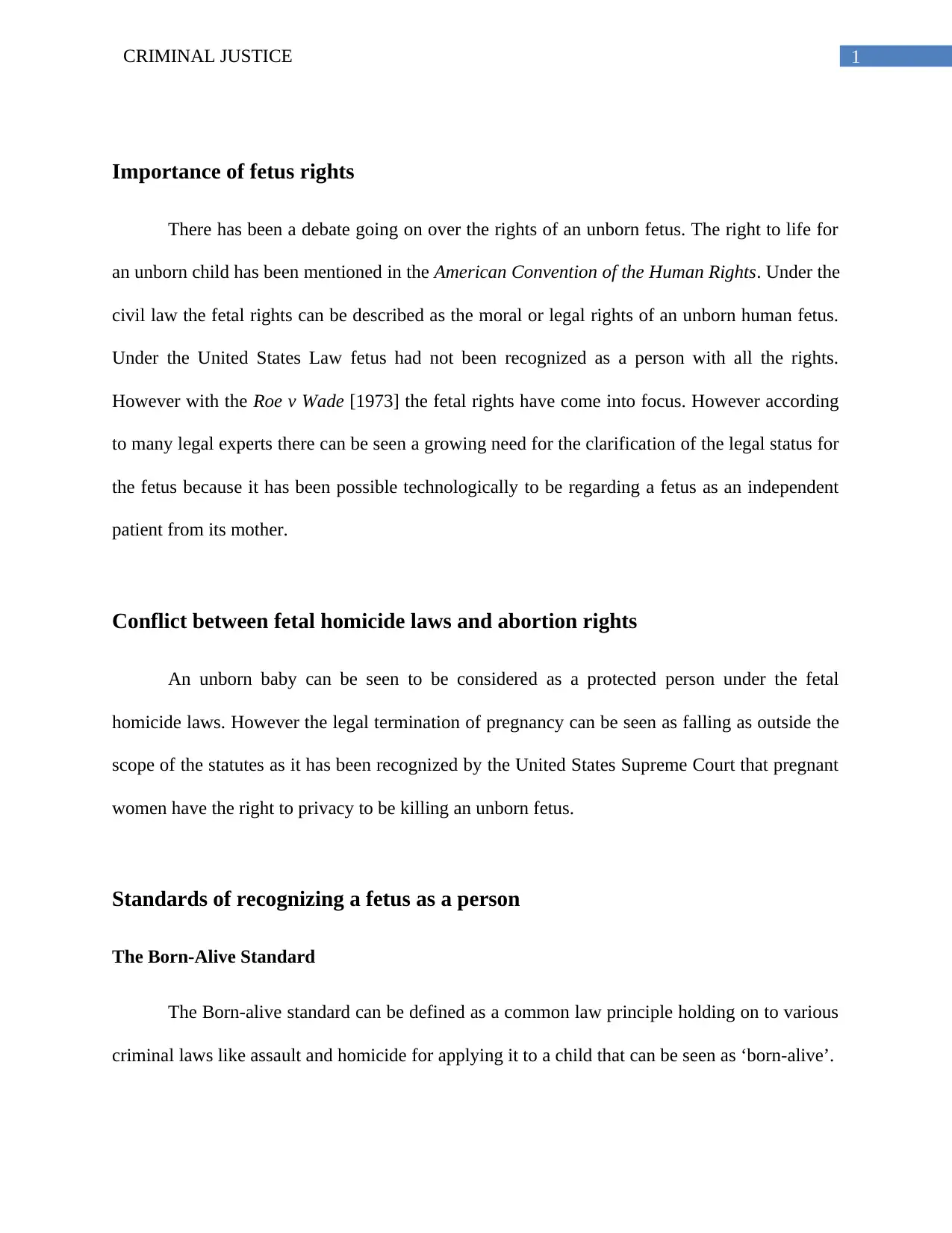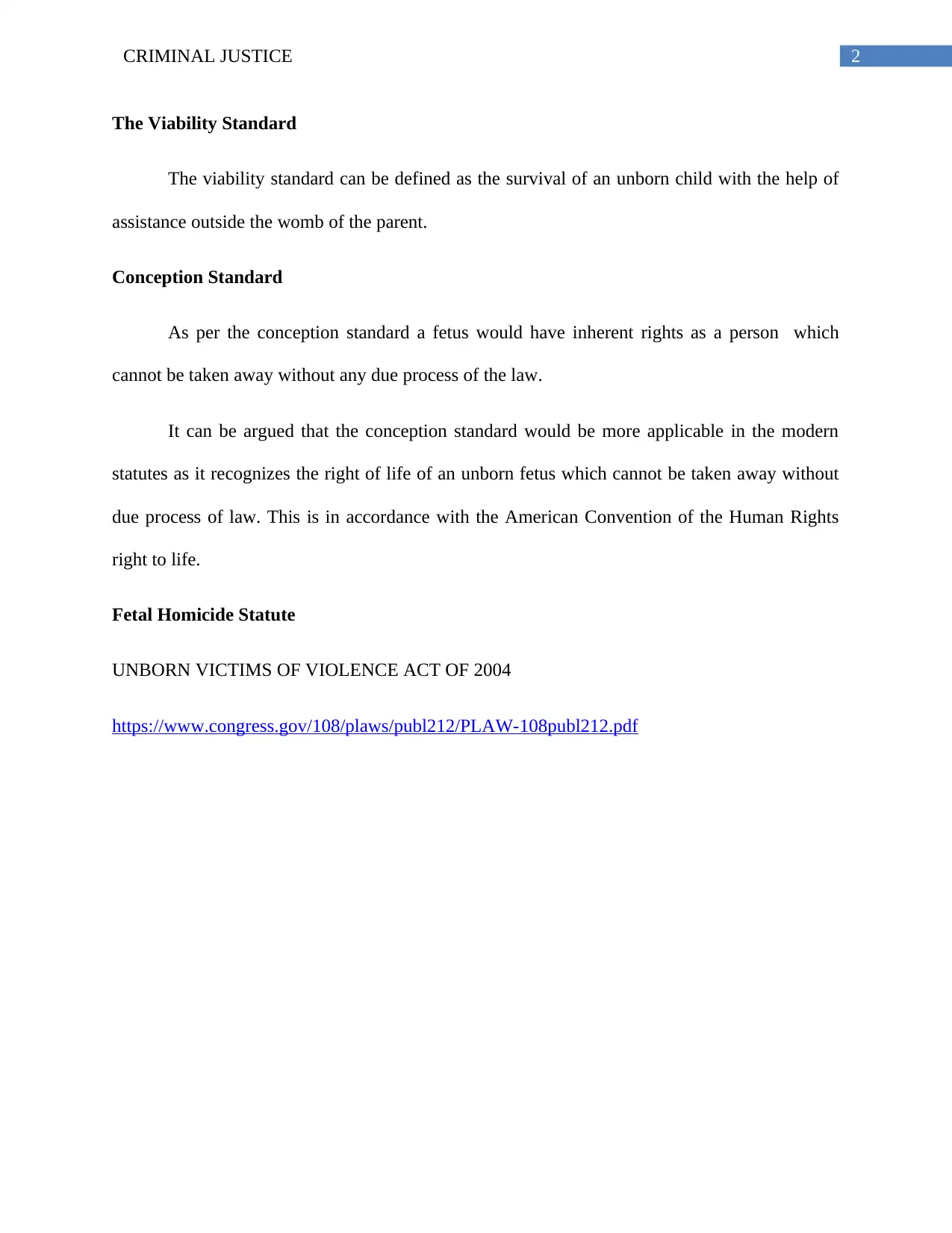Fetal Rights: Examining Legal and Ethical Considerations
VerifiedAdded on 2022/11/22
|4
|433
|64
Report
AI Summary
This report delves into the complex legal landscape surrounding fetal rights, examining the legal status of an unborn fetus and the various standards used to define it. It explores the American Convention of Human Rights and the landmark case of Roe v. Wade, highlighting the ongoing debate over fetal rights and the legal recognition of a fetus as a person. The report discusses the implications of fetal homicide laws and the rights of pregnant women, as well as the differing standards, including the born-alive, viability, and conception standards. The analysis also includes the UNBORN VICTIMS OF VIOLENCE ACT OF 2004, providing a comprehensive overview of the legal and ethical considerations surrounding fetal rights. The report aims to clarify the legal complexities associated with fetal rights in the context of modern medical and legal advancements.
1 out of 4









![[object Object]](/_next/static/media/star-bottom.7253800d.svg)